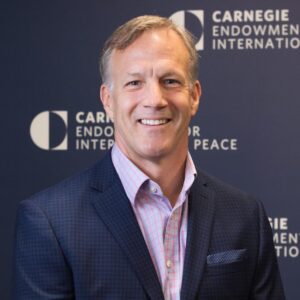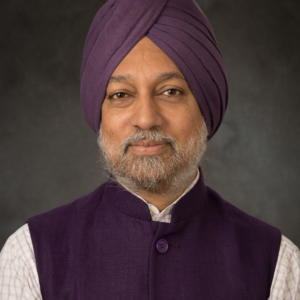UN Limited Potential? Adapting the UN for Modern Global Challenges
Virtual Briefing Series
Wednesday, November 15, 2023 | 12:00 PM – 1:00 PM ET
With the UN Security Council failing to issue a unified response to the Israel-Hamas war, questions about the efficacy of the UN and its structures are again at the fore. Furthermore, competing multilateral blocs like NATO, the Shanghai Cooperation Organization (SCO), and the now-expanded BRICS alliance are asserting their significance, influencing global decision-making and reshaping multilateral engagements. Against this backdrop of shifting dynamics of global multilateralism, what challenges and opportunities arise for the UN? How can it be effective in addressing daunting global challenges like climate change and pandemics, as well as regional conflicts? Is an expanded Security Council, as President Biden suggested, as answer? With power centers shifting, how can we reimagine the future of diplomacy, cooperation, and, most importantly, multilateralism? Join us on Wednesday, November 15 from 12PM to 1PM ET for a conversation Dr. Stewart Patrick, Senior fellow and Director of the Global Order and Institutions Program at the Carnegie Endowment for International Peace and Professor Waheguru Pal S Sidhu, Clinical Professor and Director of the United Nations (UN) Specialization at the Center for Global Affairs, School of Professional Studies, New York University.
COULDN’T ATTEND OUR EVENT? Don’t worry. You can watch it below
Stewart Patrick, “United Nations, Divided World” Commentary for Carnegie Endowment for International Peace, 2023 (Co-written with Emma Klein).
Waheguru Pal Singh Sidhu, The Future of Global Affairs: Managing Discontinuity, Disruption and Destruction, 2021 (Co-edited with Christopher Ankersen).
SPEAKERS:
Dr. Stewart Patrick
 Stewart Patrick is senior fellow and director of the Global Order and Institutions Program at the Carnegie Endowment for International Peace. His primary areas of research focus are the shifting foundations of world order, the future of American internationalism, and the requirements for effective multilateral cooperation on transnational challenges. He is particularly interested in the international governance dilemmas posed by emerging technologies, the planetary ecological crisis, and growing competition in the global commons, including the oceans and outer space.
Stewart Patrick is senior fellow and director of the Global Order and Institutions Program at the Carnegie Endowment for International Peace. His primary areas of research focus are the shifting foundations of world order, the future of American internationalism, and the requirements for effective multilateral cooperation on transnational challenges. He is particularly interested in the international governance dilemmas posed by emerging technologies, the planetary ecological crisis, and growing competition in the global commons, including the oceans and outer space.
An expert in the history and practice of multilateralism, Patrick is the author of three books, including The Sovereignty Wars: Reconciling America with the World; Weak Links: Fragile States, Global Threats, and International Security; and The Best Laid Plans: The Origins of American Multilateralism and the Dawn of the Cold War. He has written hundreds of articles, essays, chapters, and reports on problems of world order, U.S. global engagement, the United Nations and other international organizations, and the management of global issues.
A member of the Council on Foreign Relations, Patrick has served on the policy planning staff at the U.S. Department of State. He helped establish the Council of Councils, a global think tank network, and served on the steering committee of the Paris Peace Forum. He appears regularly as an expert commentator in major media, including television, radio, print, an online.
Professor Waheguru Pal S Sidhu
 Dr. Waheguru Pal Singh (W.P.S.) Sidhu is Clinical Professor and directs the United Nations (UN) Specialization at the Center for Global Affairs, School of Professional Studies (SPS), New York University. He teaches graduate-level courses on International Relations, the UN & global governance, weapons of mass destruction, and emerging powers & world order, especially India. He was bestowed with the SPS Teaching Excellence Award in 2021. Dr. Sidhu has over 30 years of pedagogical and research experience in some of the leading teaching and policy-research institutions in Asia, Europe, and North America. He is also Senior Research Associate, South African Institute of International Affairs, Johannesburg; Associate Fellow, Geneva Center for Security Policy, Switzerland; Guest lecturer at the NATO Defense College, Rome; Member, International Advisory Council of the International Luxembourg Forum on Preventing Nuclear Catastrophe; and Member, Institute for Defence Studies and Analyses, New Delhi. He has also served as a consultant to UN agencies, including three UN Panel of Governmental Experts on Missiles. He is the author of multiple books, chapters, monographs, and reports, and has published in Arms Control Today, International Peacekeeping, Jane’s Intelligence Review, Politique Etrangere, and the Bulletin of Atomic Scientists. His recent publications include Shaping the Emerging World: India and the Multilateral Order (Brookings, 2012) and The Future of Global Affairs: Managing Discontinuity, Disruption and Destruction (Palgrave, 2021). Dr. Sidhu earned his Ph.D. from the University of Cambridge. He holds a Master’s in International Relations from the School of International Studies, Jawaharlal Nehru University, and a Bachelor’s in History (Honours) from St. Stephen’s College, Delhi University, India.
Dr. Waheguru Pal Singh (W.P.S.) Sidhu is Clinical Professor and directs the United Nations (UN) Specialization at the Center for Global Affairs, School of Professional Studies (SPS), New York University. He teaches graduate-level courses on International Relations, the UN & global governance, weapons of mass destruction, and emerging powers & world order, especially India. He was bestowed with the SPS Teaching Excellence Award in 2021. Dr. Sidhu has over 30 years of pedagogical and research experience in some of the leading teaching and policy-research institutions in Asia, Europe, and North America. He is also Senior Research Associate, South African Institute of International Affairs, Johannesburg; Associate Fellow, Geneva Center for Security Policy, Switzerland; Guest lecturer at the NATO Defense College, Rome; Member, International Advisory Council of the International Luxembourg Forum on Preventing Nuclear Catastrophe; and Member, Institute for Defence Studies and Analyses, New Delhi. He has also served as a consultant to UN agencies, including three UN Panel of Governmental Experts on Missiles. He is the author of multiple books, chapters, monographs, and reports, and has published in Arms Control Today, International Peacekeeping, Jane’s Intelligence Review, Politique Etrangere, and the Bulletin of Atomic Scientists. His recent publications include Shaping the Emerging World: India and the Multilateral Order (Brookings, 2012) and The Future of Global Affairs: Managing Discontinuity, Disruption and Destruction (Palgrave, 2021). Dr. Sidhu earned his Ph.D. from the University of Cambridge. He holds a Master’s in International Relations from the School of International Studies, Jawaharlal Nehru University, and a Bachelor’s in History (Honours) from St. Stephen’s College, Delhi University, India.
We are trying our best to keep our community informed about foreign affairs, and we would appreciate if you can support us to keep this virtual briefing series going. No amount is too small.

